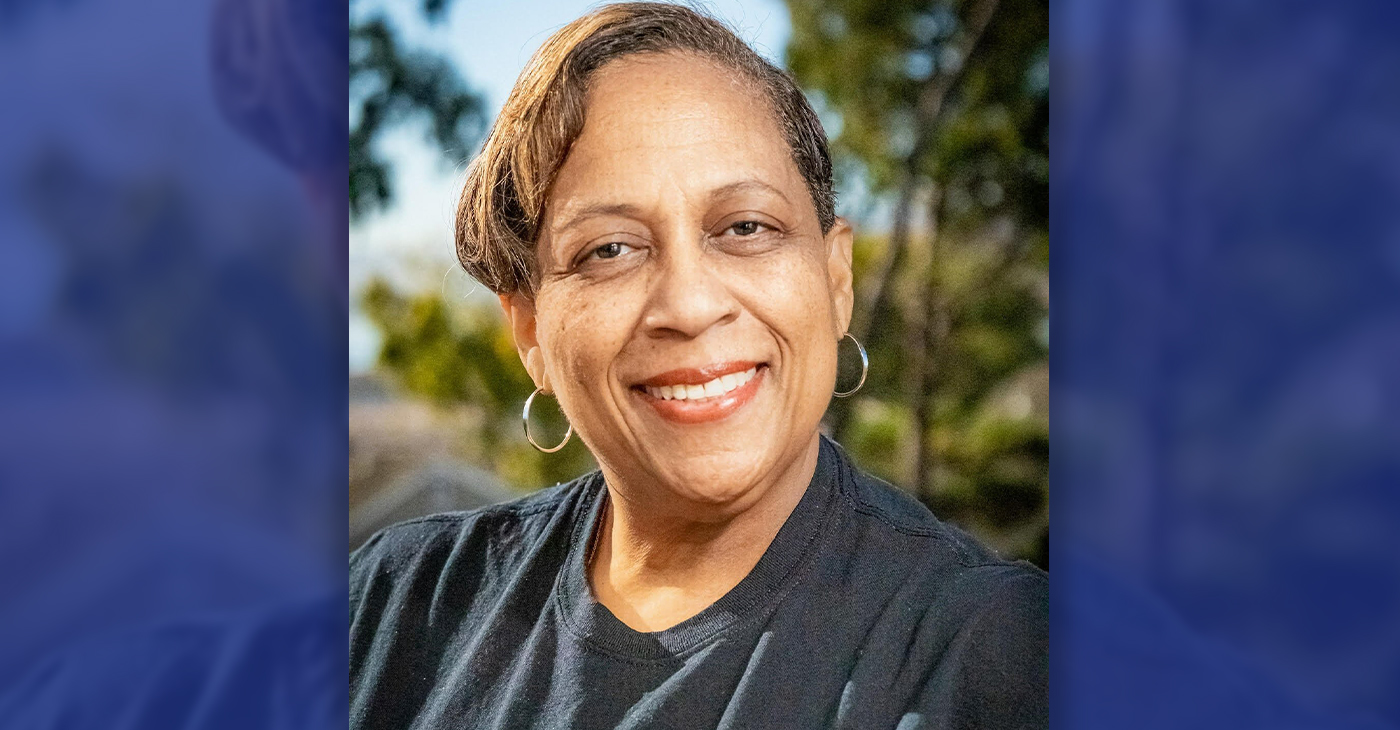Advice
Don’t skip the work
FLORIDA COURIER — The media has inundated us with various articles and studies stating that millennials feel entitled and privileged. I can agree to a certain point, but I think it applies to more than just millennials.
My father always told me I needed to “pay my dues” in life and I never truly understood what that meant and why I needed to.
My life was planned: you go to school, you go to college, you graduate, and you get a good job.
I learned the hard way that life isn’t a step-by-step puzzle and the pieces will not fit perfectly or easy together. It doesn’t matter if you went to a prestigious school or come from a great family – no one is going to just hand me success. I have to earn it.
Not just millennials
The media has inundated us with various articles and studies stating that millennials feel entitled and privileged. I can agree to a certain point, but I think it applies to more than just millennials.
I feel many of us feel so eager for success or accolades that we forget to do the steps. To appreciate the journey of highs and lows, to learn from our mistakes and from our achievements.
I talk in my book “Finding My Sparkle” about how I hated the way I looked, but had to take a deeper dive into what I was doing about it. I was complaining, I was living in my feelings of sadness – but what was I doing to change it? I had to put in the work.
In that case, it was making a plan to change my eating habits, working out more and overall making a lifestyle change. This applies to everything in life, including climbing the corporate ladder or building a successful business.
Master current level
Too often, I see clients and others give up because life is not going their way, but then when asked, “Did you do XYZ?” they only did X. You can’t skip to the next level without mastering the level you are on currently.
Often, we get wrapped up in someone else’s journey and want to compare theirs to ours. Truth is, you never know what work they did behind the scenes to get to where they are today. People only show you what they want to show you. The struggle and work are often left out.
The work can be unsexy. I totally get it and understand. We often find ourselves unmotivated to just even start. Our checklist is next to us but then we seem to use every excuse and distraction to delay us from diving into what needs to be done.
This is where determination kicks in. If you truly want to succeed you have to start. There is no magic pill, secret sauce or easy button – the magic is in the action. Here are a couple ways to help you navigate the work:
- Do it with purpose. Don’t confuse purpose with passion. Many of us lead with passion because we are ready for an end result such as a paycheck or an award. At the end of the day, purpose will prevail due to it being your calling. Many people working in corporate or as an entrepreneur lead with purpose because it’s what we truly love doing. We wouldn’t endure the sacrifices, long nights, stress if we weren’t truly doing it for purpose. I’m not saying you can’t have passion about your purpose, but make sure purpose is your number one focus.
- Don’t skip the steps. Make a plan. Want to move up the corporate ladder? Map out a 5-year plan on how you’re going to get to your desired position(s). Along the way you may need to complete additional educational or professional development courses. Do them. You can’t jump from an assistant to the vice president overnight.
- Do it over time. There is no such thing as an overnight success. Social media can be very misleading where people seem to pop out of nowhere with the perception that are doing great things. Most certainly, they have been working hard at their career or business for a while, but their work is just now starting to “bloom” from the seeds they have planted. Stay consistent and you will see growth soon.
- Do the work. There isn’t much explanation needed for this one. You have to devote the time, sweat and tears into making your goals realities. Seek out mentors that will help you stay accountable, steer towards what you need to do, and give constructive criticism (and not just a pat on the back). Wake up, get dressed and do the work, every day.
Need more motivation? Stay connected with me at www.morganaowens.com and IG miss_ morgan86.
This article originally appeared in the Florida Courier.
Activism
AI Is Reshaping Black Healthcare: Promise, Peril, and the Push for Improved Results in California
Black Californians experience some of the worst health outcomes in the state due to systemic inequities, limited healthcare access, and exclusion from medical research. 16.7% of Black adults report fair or poor health, versus 11.5% of Whites. Black adults have the highest death rates from prostate, breast, colorectal, and lung cancer. Statewide, diabetes affects 13.6% of Black adults versus 9.1% of Whites, and 27% of Black adults over 65 have heart disease, compared to 22% of Whites. Life expectancy for Black Californians is about five years shorter than the state average.

Joe W. Bowers Jr.
California Black Media
Artificial intelligence (AI) is changing how Californians receive medical care – diagnosing diseases, predicting patient needs, streamlining treatments, and even generating medical notes for doctors.
While AI holds promise, it also poses risks, particularly for Black patients. It can provide faster diagnoses and expand access to care, but it may also misdiagnose conditions, delay treatment, or overlook patient’s critical needs. AI’s impact on Black patients depends on how biases in medical data and algorithms are addressed in its development.
“As we progress toward a society with increased use of AI technology, it is critical that the biases and stereotypes that Black Americans have faced are not perpetuated in our future innovations,” said Dr. Akilah Weber Pierson (D – San Diego), a physician and state senator spearheading legislative efforts to address AI bias in healthcare.
Why AI Matters for Black Californians
Black Californians experience some of the worst health outcomes in the state due to systemic inequities, limited healthcare access, and exclusion from medical research. 16.7% of Black adults report fair or poor health, versus 11.5% of Whites. Black adults have the highest death rates from prostate, breast, colorectal, and lung cancer. Statewide, diabetes affects 13.6% of Black adults versus 9.1% of Whites, and 27% of Black adults over 65 have heart disease, compared to 22% of Whites. Life expectancy for Black Californians is about five years shorter than the state average.
Benefits and Risks of AI in Healthcare
AI processes vast amounts of medical data using computer algorithms designed to identify patient health patterns, helping doctors to diagnose diseases, recommend treatment, and increase patient care efficiency. By analyzing scans, lab results, and patient history, AI can detect diseases
earlier, giving it the potential to improve care for Black patients, who face higher risks of prostate cancer, diabetes, heart disease and hypertension.
Dr. Judy Gichoya, an Interventional radiologist at the Emory University Winship Cancer Institute and AI researcher at Emory’s Healthcare AI Innovation and Translational Informatics (HITI) Lab, sees AI as a tool with great potential but cautions that its effectiveness depends on the diversity of the data it is trained on. She says, “Without diverse datasets, AI could overlook critical signs of diseases, especially in underrepresented populations like Black patients.”
Dr. Timnit Gebru, a computer scientist and AI ethics expert, is the founder and Executive Director of DAIR (Distributed AI Research Institute) in Oakland. She has extensively studied bias in AI systems and their impact on marginalized groups.
Gebru acknowledges that AI has the potential to improve healthcare by enhancing efficiency and expanding access to medical resources. But, like Gichoya she strongly stresses that for AI to be effective and equitable it needs to be subject to rigorous oversight.
AI is already helping doctors personalize cancer treatment by identifying biomarkers and genetic mutations. UCSF and Stanford Health use AI to analyze tumor DNA to match patients with the most effective chemotherapy or immunotherapy.
In diabetes care, AI predicts blood sugar fluctuations, helping doctors adjust treatment. It helps radiologists in early disease detection and identifies sepsis sooner, reducing hospital deaths. In cardiology, AI detects early signs of heart disease, spotting plaque buildup or abnormal heart rhythms before symptoms appear. It also helps predict strokes by analyzing brain scans to determine risk and guide intervention.
Kaiser Permanente uses AI scribes to reduce paperwork and improve patient interactions. Covered California has partnered with Google
Cloud to use AI to streamline document verification and eligibility decisions.
Despite these advancements, AI systems trained on biased medical data can perpetuate inequities for Black patients.
Gebru explains, “If AI learns from historically discriminatory medical decisions—such as undertreating Black patients—it will scale those biases.”
A notable example is in dermatology, where AI frequently misdiagnoses conditions in Black patients because most training datasets are based on lighter-skinned individuals. “Melanoma looks very different on darker skin,” Gebru notes. “It’s not just darker—it often appears differently, like under toenails, a pattern AI trained mostly on lighter skin won’t detect.”
Another risk of AI in healthcare is automation bias, where healthcare providers over-rely on AI, even when it contradicts medical expertise. “Doctors who would have prescribed medications accurately without AI sometimes make mistakes while using automated tools because they over-trust these systems,” Gebru adds.
AI-driven health insurance claim denials are a growing concern. UnitedHealthcare faces a class-action lawsuit for allegedly using an unregulated AI algorithm to deny rehabilitation coverage to elderly and disabled patients.
Beyond bias, AI also poses an environmental threat. AI systems require enormous amounts of energy for computing and massive amounts of water to cool data centers, which exacerbates climate change, an issue that already disproportionately impacts Black communities.
Trump Administration and DEI Impact
The Trump administration’s efforts to dismantle Diversity, Equity, and Inclusion (DEI) threatens funding for AI bias research in healthcare.
Less federal support could stall progress in making AI systems fairer and more accurate, increasing discrimination risks for Black patients.
California’s Legislative and Regulatory Response
Recognizing AI’s risks in healthcare, California lawmakers and state officials are implementing regulations. Weber Pierson introduced Senate Bill (SB) 503 to ensure that AI algorithms used in healthcare are tested for racial bias before implementation.
“We’ve already seen how biased medical devices like pulse oximeters can fail Black patients,” Weber Pierson explains. “If algorithms used in patient care aren’t inclusive, they’re not going to accurately serve melanated individuals.”
At a press conference introducing SB 503, Weber Pierson stressed that AI must be held accountable. “This bill focuses on ensuring that software used as an accessory to healthcare staff delivers sound, nondiscriminatory decisions that promote equitable outcomes.”
Other legislative efforts include Senate Bill (SB) 1120, by Sen. Josh Becker (D-Menlo Park), which stops insurance companies from using AI alone to deny or delay care and Assembly Bill (AB) 3030, by Assemblymember Lisa Calderon (D-Whittier), which requires healthcare providers to inform patients when AI is used in their care.
Attorney General Rob Bonta has issued a legal advisory barring AI from unfairly denying healthcare claims, falsifying records, or restricting access to care based on medical history. Gov. Gavin Newsom’s 2023 executive order directs state agencies to assess AI’s impact and establish consumer protections, particularly in healthcare.
Actions Black Patients and Families Can Take
As AI becomes more common in healthcare, Black Californians can ensure fair treatment by asking if AI is used, seeking second opinions, and supporting groups addressing algorithmic bias.
They can:
- Ask their healthcare providers whether AI played a role in their diagnosis or treatment.
- Request second opinions if an AI-generated diagnosis seems questionable.
- Advocate for AI policies and legislation promoting fairness and accountability. · Engage with community health organizations like the California Black Health Network (CBHN) that is engaged in ensuring AI is developed in ways to improve health outcomes for Black patients.
Rhonda Smith, CBHN’s executive director, says bias in medical algorithms must be eliminated. “There should never be any race-based adjustment in delivering patient care,” she said.
CBHN supports inclusive research and legislation like SB 503 to ensure AI promotes equity.
Ensuring AI Benefits All Communities
As a legislator, Weber Pierson is pushing for stronger safeguards to ensure AI serves all patients equitably. She says, “Innovation and technology are good, but new challenges arise if we don’t move in a direction inclusive and thoughtful of all people who utilize the healthcare space.”
AI has the potential to revolutionize healthcare, but experts warn it must be developed and regulated with transparency, accountability, and fairness – ensuring it reduces rather than worsens, racial health disparities.
Advice
Let’s Go to The Doctor: What Happens When Your Brain Gets Sick
As we grow older, it’s natural to feel concern about changes in our mental abilities. We want to carry out our daily routines, be self-sufficient and relive the most treasured moments of our lives – without having to worry about our memory and dementia.

Part 2 of 2
By Clifford L. Williams
“Everyone ages,” as noted by BlackDoctor.org (BD). The longer you live on Earth, the more you will notice how things change – including your body and mind.
Aging is a natural process of our lives, according to BD. As we age, we experience gradual changes to our brains and bodies. Some of these changes affect our physical and mental abilities and may increase our risk of disease.
Each one of us experiences aging differently. The extent of how we experience changes due to aging, and the point in our lives when they start becoming more noticeable, varies from person to person.
As we grow older, it’s natural to feel concern about changes in our mental abilities. We want to carry out our daily routines, be self-sufficient and relive the most treasured moments of our lives – without having to worry about our memory and dementia.
According to the World Health Organization (WHO) almost 40% of us will experience some form of memory loss after we turn 65 years old.
But even if we experience memory loss, chances are still unlikely that we have dementia. For the most part, our memory loss is mild enough that we can still live our day-to-day lives without interruption.
The WHO estimates that, after we turn 60 years old, 5% to 8% of us will live with dementia at some point. With dementia, symptoms including memory loss gradually worsen to the point where our abilities seriously deteriorate, and we are no longer able to take care of ourselves.
But dementia and Alzheimer’s are not the same. Dementia is a collection of symptoms, while Alzheimer’s is disease of the brain. It is the top neurodegenerative disorder in the world. The Centers for Disease Control and Prevention (CDC) estimates that 5.8 million Americans live with Alzheimer’s in the United States.
Early Signs of Alzheimer’s to Look Out For:
- Difficulty finding words, vision or spatial issues, and impaired judgment or reasoning
- Stuttering or halting speech, difficulty recalling words, or using substitutes for words
- Difficulty paying bills, cooking, or following a recipe
- Losing track of dates, getting lost in a familiar place, or having trouble understanding an event that’s happening later
- Becoming more easily upset, feeling depressed, scared, or anxious, or being suspicious of people
- Scaling back on projects at work, becoming less involved with hobbies, or lacking motivation
When it comes to enhancing our memory and cognitive abilities, engaging in brain games is an effective and enjoyable approach. Not only do these games provide entertainment, but they also stimulate various areas of the brain, leading to improved memory.
According to HealthDay News, a new drug to treat Alzheimer’s disease has been approved by the U.S. Food and Drug Administration. In clinical trials, donanemab (Kisunla), modestly slowed the decline in thinking among patients in the early stages of the disease.
With a diagnosis of dementia and seeking information about that illness, it can be both overwhelming and emotional. If you or a loved one has been diagnosed early, there is hope. You can plan for your care before your symptoms accelerate.
To Our Readers:
For information on other health-related issues regarding men’s health, please share your thoughts and/or concerns with the Post Newspaper Group editorial staff.
Activism
Life After Domestic Violence: What My Work With Black Women Survivors Has Taught Me
Survivors sometimes lack awareness about the dynamics of healthy relationships, particularly when one has not been modeled for them at home. Media often minimizes domestic abuse, pushing the imagery of loyalty and love for one’s partner above everything — even harm.

By Paméla Michelle Tate, Ph.D., California Black Media Partners
It was the Monday morning after her husband had a “situation” involving their child, resulting in food flying in the kitchen and a broken plate.
Before that incident, tensions had been escalating, and after years of unhappiness, she finally garnered enough courage to go to the courthouse to file for a divorce.
She was sent to an on-site workshop, and the process seemed to be going well until the facilitator asked, “Have you experienced domestic abuse?” She quickly replied, “No, my husband has never hit me.”
The facilitator continued the questionnaire and asked, “Has your husband been emotionally abusive, sexually abusive, financially abusive, technologically abusive, or spiritually abusive?”
She thought about how he would thwart her plans to spend time with family and friends, the arguments, and the many years she held her tongue. She reflected on her lack of access to “their money,” him snooping in her purse, checking her social media, computer, and emails, and the angry blowups where physical threats were made against both her and their children.
At that moment, she realized she had been in a long-suffering domestic abuse relationship.
After reading this, you might not consider the relationship described above as abusive — or you might read her account and wonder, “How didn’t she know that she was in an abusive relationship?”
Survivors sometimes lack awareness about the dynamics of healthy relationships, particularly when one has not been modeled for them at home. Media often minimizes domestic abuse, pushing the imagery of loyalty and love for one’s partner above everything — even harm.
After working with survivors at Black Women Revolt Against Domestic Violence in San Francisco, California, I have learned a great deal from a variety of survivors. Here are some insights:
Abuse thrives in isolation.
Societal tolerance of abusive behavior is prevalent in the media, workplaces, and even churches, although there are societal rules about the dos and don’ts in relationships.
Survivors are groomed into isolation.
Survivors are emotionally abused and manipulated almost from the beginning of their relationships through love-bombing. They are encouraged or coerced into their own little “love nest,” isolating them from family and friends.
People who harm can be charismatic and fun.
Those outside the relationship often struggle to believe the abuser would harm their partner until they witness or experience the abusive behavior firsthand.
Survivors fear judgment.
Survivors fear being judged by family, friends, peers, and coworkers and are afraid to speak out.
Survivors often still love their partners.
This is not Stockholm Syndrome; it’s love. Survivors remember the good times and don’t want to see their partner jailed; they simply want the abuse to stop.
The financial toll of abuse is devastating.
According to the Allstate Foundation’s study, 74% of survivors cite lack of money as the main reason for staying in abusive relationships. Financial abuse often prevents survivors from renting a place to stay. Compounding this issue is the lack of availability of domestic abuse shelters.
The main thing I have learned from this work is that survivors are resilient and the true experts of their own stories and their paths to healing. So, when you encounter a survivor, please take a moment to acknowledge their journey to healing and applaud their strength and progress.
About the Author
Paméla Michelle Tate, Ph.D., is executive director of Black Women Revolt Against Domestic Violence in San Francisco.
-

 Activism4 weeks ago
Activism4 weeks agoOakland Post: Week of April 2 – 8, 2025
-

 Activism3 weeks ago
Activism3 weeks agoOakland Post: Week of April 9 – 15, 2025
-

 #NNPA BlackPress4 weeks ago
#NNPA BlackPress4 weeks agoTrump Profits, Black America Pays the Price
-

 Activism2 weeks ago
Activism2 weeks agoOakland Post: Week of April 16 – 22, 2025
-

 #NNPA BlackPress4 weeks ago
#NNPA BlackPress4 weeks agoHarriet Tubman Scrubbed; DEI Dismantled
-

 #NNPA BlackPress4 weeks ago
#NNPA BlackPress4 weeks agoNew York Stands Firm Against Trump Administration’s Order to Abandon Diversity in Schools
-

 #NNPA BlackPress4 weeks ago
#NNPA BlackPress4 weeks agoTrump Targets a Slavery Removal from the National Museum of African-American History and Culture
-

 #NNPA BlackPress4 weeks ago
#NNPA BlackPress4 weeks agoLawmakers Greenlight Reparations Study for Descendants of Enslaved Marylanders


























































